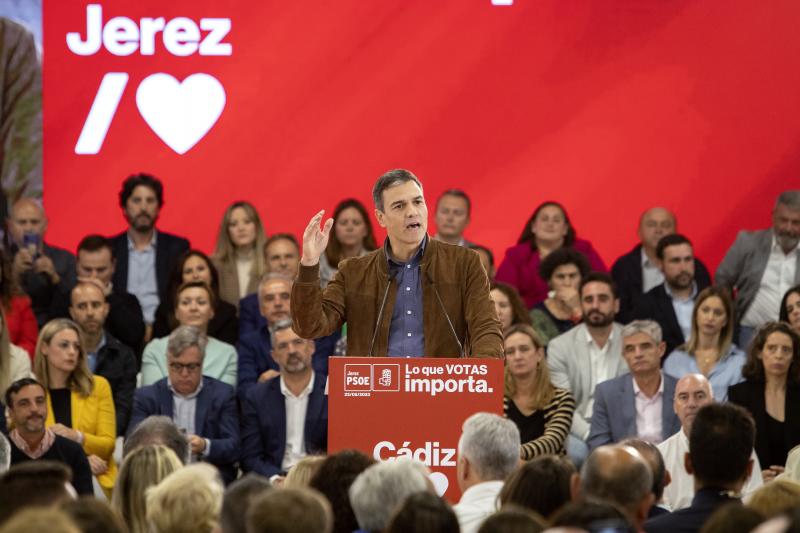A partly dressed rehearsal
Although Sunday's vote will provide some indications of how the next general election will go, it shouldn't be taken literally as a dry-run
Mark Nayler
Viernes, 26 de mayo 2023, 13:20
Inevitably, many English-language media outlets ran articles this week in which the local elections happening across Spain this Sunday were described as a "dress ... rehearsal" for the national vote in December. Characterising them in this way is partly correct, partly incorrect.
It's true that Sunday's vote will be a reliable indication of how Spain's two main two parties are doing, especially in Madrid, where the Conservative leader has repeatedly challenged Pedro Sánchez in high-profile clashes. If Isabel Díaz Ayuso is once again chosen as Popular Party (PP) president of the capital, for example, that can be taken as confirmation that her economic and social libertarianism has gone down well with Madrileños. And given Madrid's hugely varied demographic, that in turn would indicate that the PP is on track to beat the PSOE in December. Polls show that Ayuso is heading for a second victory - indeed, for the Socialists to win Madrid, thus moving up more than twenty points from third place to first, would be one of the weekend's biggest surprises.
The national plight of smaller parties in December is also likely to be affected by their home performances on Sunday. Keep a close eye on Podemos, a party which has failed to maintain the momentum of its early success and now risks dropping off the map in some areas, as happened to Ciudadanos before its disappearance from national politics. Podemos has posted poor results in several recent elections, including those held in Andalucía in 2022, when the PP won an absolute majority and the PSOE suffered its worst ever defeat.
It mustn't be forgotten, though, that these are first and foremost local elections. Local, practical issues are likely to loom larger in voters' minds than political ideology, national affairs, or who should be running the country come January - or, more realistically, come sometime next year, after the prolonged cross-party wrangling that will almost certainly follow December's vote (as it has done on every occasion since 2015).
Sánchez's administration has a lot to answer for, even if up until now you've been a lifelong PSOE supporter: allegedly spying on Catalan separatists; forcing an illegal lockdown, transgressions of which were punished with fines that now have to be reimbursed or cancelled; fighting constantly with its coalition partner, especially over foreign policy (Morocco, Algeria, Ukraine) and the 'Only Yes Means Yes' law; and, so far at least, ineffective spending of so-called Covid recovery funds from the EU.
On Sunday, disenchanted Socialist voters can only indirectly vent their anger at the national leadership by switching local allegiance, whether to another leftist party or the Conservatives; but that would be self-defeating if they otherwise have no reason to do so (and potentially awkward in the bars and on the streets). Although Sunday's vote will provide some indications of how the next general election will go, it shouldn't be taken literally as a dry-run. The true reckoning for Sánchez will only come in December.
¿Tienes una suscripción? Inicia sesión
